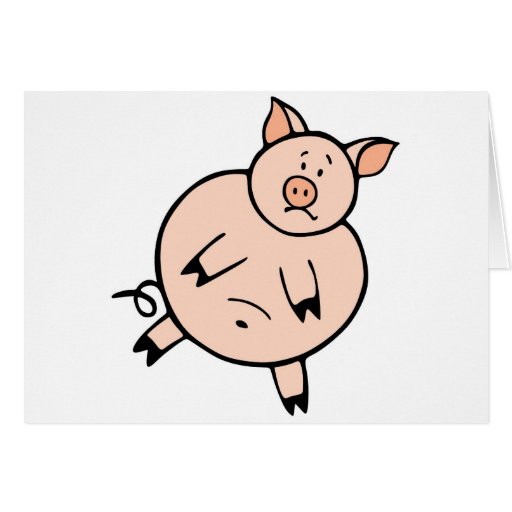Fat Piggy: A Comprehensive Guide To Understanding The Concept And Its Implications
The term "fat piggy" has become increasingly popular in discussions around body image, self-esteem, and societal perceptions of weight. This phrase, often used in various contexts, carries significant weight in terms of its implications on mental health, social interactions, and personal identity. Understanding the concept of "fat piggy" is essential for fostering a more inclusive and compassionate society.
In recent years, the conversation around body positivity has gained momentum, challenging traditional norms and encouraging individuals to embrace their bodies regardless of size or shape. The term "fat piggy" plays a crucial role in this discourse, highlighting the complexities of how society perceives and labels individuals based on their appearance. By exploring this topic, we aim to shed light on its significance and provide valuable insights into its impact on personal and social levels.
This article will delve into the various dimensions of "fat piggy," including its origins, cultural relevance, and psychological effects. We will also examine strategies for promoting body positivity and creating a more accepting environment for individuals of all sizes. By the end of this guide, readers will have a comprehensive understanding of the topic and actionable steps to contribute positively to the conversation.
Read also:Mzansi Fun Telegram Channel A Comprehensive Guide To Joining And Enjoying The Fun
Table of Contents
- The Origin of the Term "Fat Piggy"
- Cultural Relevance of "Fat Piggy"
- Psychological Effects of the Term
- Promoting Body Positivity
- Media Representation of "Fat Piggy"
- Social Impact and Stigma
- Health Perspective on "Fat Piggy"
- Legal Considerations and Protections
- Building Support Systems
- Future Directions and Conclusion
The Origin of the Term "Fat Piggy"
The phrase "fat piggy" has roots in colloquial language and informal settings, often used as a derogatory term to describe individuals with larger body sizes. Over time, its usage has evolved, with some communities reclaiming the term as a form of empowerment. Understanding its origins provides insight into the societal attitudes toward body size and the need for greater awareness and sensitivity.
Historical Context
Historically, body size has been a subject of judgment and scrutiny, with cultural norms dictating what is considered "acceptable" or "ideal." The term "fat piggy" emerged as a reflection of these norms, perpetuating negative stereotypes and reinforcing societal biases. However, recent movements have sought to challenge these perceptions, promoting inclusivity and acceptance.
Evolution of Meaning
As society becomes more aware of the impact of language on mental health, the meaning of "fat piggy" has shifted. Many individuals and communities now use the term to reclaim their identities, turning it into a symbol of resilience and self-acceptance. This evolution highlights the power of language in shaping perceptions and attitudes.
Cultural Relevance of "Fat Piggy"
Culture plays a significant role in shaping how individuals perceive and interact with the concept of "fat piggy." Different cultures have varying attitudes toward body size, influencing the way the term is used and understood. Examining these cultural differences provides a broader perspective on its relevance in today's society.
Global Perspectives
- In Western cultures, there is a growing movement toward body positivity, challenging traditional beauty standards.
- In some Eastern cultures, the emphasis on slimness remains prevalent, although this is gradually changing.
- Indigenous cultures often celebrate diversity in body types, offering a more inclusive approach to beauty.
Impact on Identity
The cultural relevance of "fat piggy" extends beyond language, influencing how individuals view themselves and their place in society. By embracing diverse cultural perspectives, we can foster a more inclusive environment that values all body types.
Psychological Effects of the Term
The psychological impact of "fat piggy" cannot be underestimated. Words have the power to shape self-perception and influence mental health. Understanding the effects of such language is crucial for promoting well-being and reducing stigma.
Read also:Sarah Christine Roemer A Comprehensive Guide To The Talented Actress
Self-Esteem and Confidence
Derogatory terms like "fat piggy" can significantly impact self-esteem, leading to feelings of inadequacy and low confidence. Individuals who experience such language may struggle with body image issues and develop negative self-perceptions.
Mental Health Implications
Research has shown that exposure to negative language about body size is linked to increased rates of anxiety, depression, and eating disorders. By addressing these issues, we can create a more supportive environment that prioritizes mental health.
Promoting Body Positivity
Body positivity is a movement that encourages individuals to embrace their bodies, regardless of societal norms. By promoting this philosophy, we can reduce the negative impact of terms like "fat piggy" and foster a more inclusive society.
Strategies for Change
- Encourage open discussions about body image and self-acceptance.
- Support initiatives that celebrate diversity in body types.
- Challenge traditional beauty standards by highlighting the beauty of all individuals.
Community Engagement
Community involvement is key to promoting body positivity. By working together, we can create environments that celebrate individuality and promote self-love.
Media Representation of "Fat Piggy"
Media plays a pivotal role in shaping public perceptions of body size and the term "fat piggy." By examining media representation, we can better understand its impact on societal attitudes and work toward more accurate and inclusive portrayals.
Positive Representation
Recent years have seen an increase in positive media representation of individuals with diverse body types. This shift is crucial for challenging stereotypes and promoting acceptance.
Challenges in Representation
Despite progress, challenges remain in ensuring accurate and respectful representation. Continued efforts are needed to address biases and promote inclusivity in media.
Social Impact and Stigma
The social impact of "fat piggy" extends beyond individual experiences, affecting broader societal attitudes and interactions. Addressing stigma is essential for creating a more compassionate and understanding community.
Reducing Stigma
Education and awareness are key to reducing stigma associated with body size. By promoting empathy and understanding, we can create a society that values all individuals equally.
Community Support
Building supportive communities is crucial for addressing stigma and fostering inclusivity. By working together, we can create environments where everyone feels valued and respected.
Health Perspective on "Fat Piggy"
From a health perspective, the term "fat piggy" highlights the importance of addressing both physical and mental well-being. By focusing on overall health rather than appearance, we can promote a more holistic approach to wellness.
Physical Health Considerations
Physical health is influenced by a variety of factors, including genetics, lifestyle, and environment. By emphasizing overall health rather than weight alone, we can encourage individuals to prioritize their well-being in meaningful ways.
Mental Health Focus
Mental health is equally important, and addressing the psychological impact of terms like "fat piggy" is crucial for promoting well-being. By prioritizing mental health, we can create a more supportive and compassionate society.
Legal Considerations and Protections
Legal frameworks play a vital role in protecting individuals from discrimination based on body size. By examining existing laws and advocating for change, we can ensure that all individuals are treated fairly and with respect.
Anti-Discrimination Laws
Many countries have implemented anti-discrimination laws to protect individuals from bias based on body size. These laws are essential for promoting equality and ensuring that everyone is treated with dignity and respect.
Advocacy for Change
Continued advocacy is needed to address gaps in legal protections and promote greater awareness of body size discrimination. By working together, we can create a more equitable society for all.
Building Support Systems
Support systems are crucial for addressing the challenges associated with "fat piggy" and promoting well-being. By creating networks of support, we can empower individuals and communities to thrive.
Peer Support
Peer support groups offer valuable opportunities for individuals to connect, share experiences, and find encouragement. These groups play a vital role in promoting self-acceptance and resilience.
Professional Resources
Access to professional resources, such as therapists and counselors, is essential for addressing the psychological impact of terms like "fat piggy." By providing these resources, we can support individuals in their journey toward self-acceptance and well-being.
Future Directions and Conclusion
In conclusion, the concept of "fat piggy" highlights the complexities of body image, self-esteem, and societal perceptions. By understanding its origins, cultural relevance, and psychological effects, we can work toward creating a more inclusive and compassionate society.
We encourage readers to take action by engaging in open discussions, supporting body positivity initiatives, and advocating for change. Together, we can create a world where all individuals are valued and respected, regardless of their size or shape.
Thank you for reading this comprehensive guide. We invite you to share your thoughts in the comments section below and explore other articles on our site for more insights into related topics.


